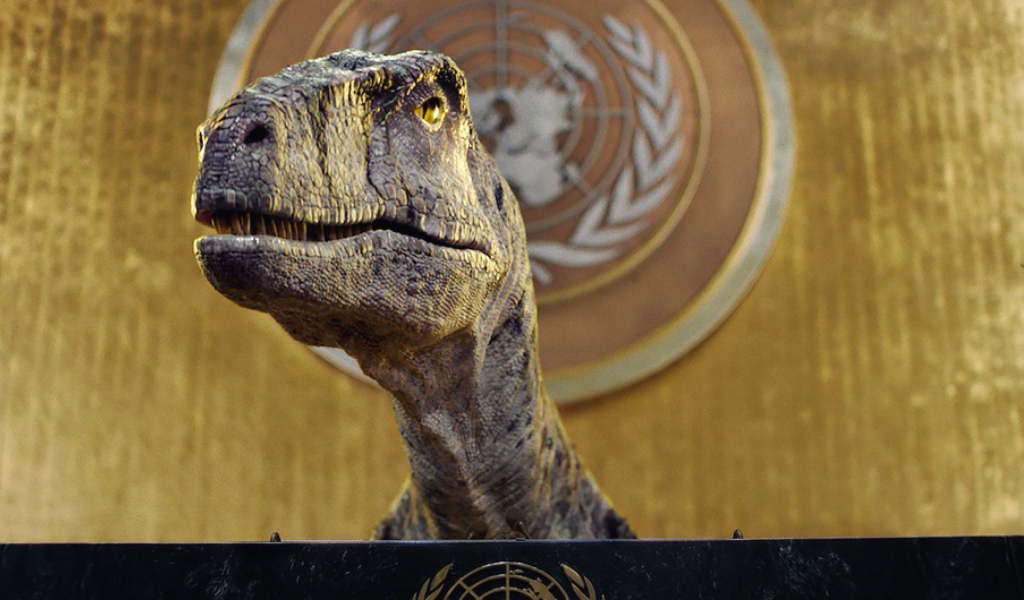
‘Don’t Choose Extinction’ For the Sake of You, Me, and Our Future!
In a short filmed launched at the United Nations’ Headquarters, a ferocious talking dinosaur has urged more climate action from global leaders.
Titled ‘Don’t Choose Extinction’, the iconic General Assembly Hall, famous for history-making speeches by leaders from around the world, became center stage for the dinosaur to speak to an audience of shocked and bewildered diplomats and dignitaries.
“It’s time humans stopped making excuses and started making changes,” pleaded the dinosaur. “At least we had an asteroid. What’s your excuse?”
This first-ever film to be made inside the UN General Assembly using computer-generated imagery (CGI) features global celebrities voicing the dinosaur in numerous languages, including actors Eiza González (Spanish), Nikolaj Coster-Waldau (Danish), and Aïssa Maïga (French).
As entertaining the movie was, the underlining aim of the showcase was to raise awareness of just how critical the situation is - ‘code red for humanity’.
“The world must step up on climate action if we are to succeed in keeping our planet safe for future generations.” - Ulrika Modéer, Head of UNDP’s Bureau for External Relations and Advocacy
Globally, taxpayers’ money that helps keep the cost of coal, oil and gas low for consumers – all the meaningless ways in which financial support is gathered for fossil fuels that are useless in the face of climate change can easily be turned around and used for something rational and logical, as highlighted by the dinosaur.
“Think of all the other things you could do with that money. Around the world people are living in poverty. Don’t you think that helping them would make more sense than… paying for the demise of your entire species?” the dinosaur says.
Annually, an astounding US $423 billion is spent to subsidize fossil fuel for consumers. This could cover the cost of COVID-19 vaccinations for every person in the world, or pay for three times the annual amount needed to eradicate global extreme poverty according to the research released by UNDP as part of the campaign.
Through a variety of actions that the public is invited to take, the aim is to both educate and give voice to people worldwide.